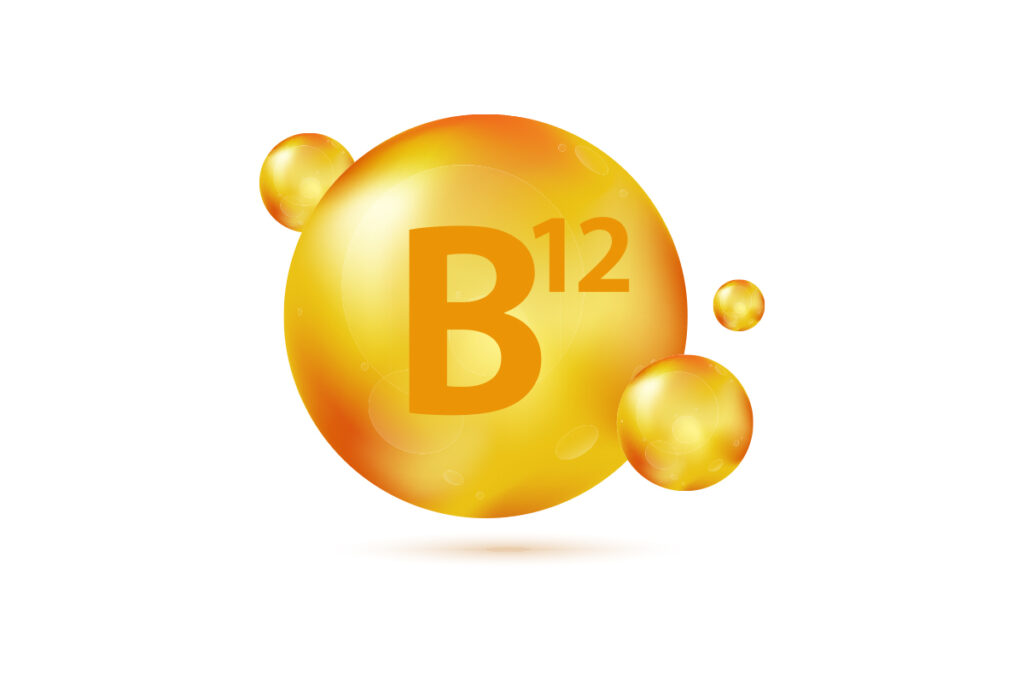Common Thyroid Disorders
According to the National Graves Foundation, about 13 million Americans, more women than men, are affected by thyroid disorders. Women often overlook their symptoms or mistake them for symptoms of other conditions. According to the Thyroid Foundation of America, more than half of thyroid disorders are never diagnosed because symptoms are similar to those of other conditions such as menopause.

Women and Thyroid Disease
According to Anil Bhatia, M.D., Chattanooga endocrinologist, thyroid dysfunction is about 6 times higher in women than in men. “Most women do not know that they have it,” he notes. “Autoimmune destruction of the thyroid known as Hashimoto’s thyroiditis is much more common in women, plus pregnancy related and post partum thyroiditis, then there is menopausal disease,” he says. “Thyroid disease is a common cause of weight gain, particularly in women. When the hormone is low, energy is reduced with the result that fat accumulates in the body. Tiredness and weakness that goes along with the disorder may cause activity levels to drop, adding to the problem,” says Bhatia.

Endocrinologist Ana Cornea says the fact that women are more predisposed to autoimmune disease accounts for the greater numbers of women with hypothyroidism. “Hashimoto’s is an autoimmune disease, that is why it is more prevalent in women, but it does affect men, too,” she comments. “I see it mostly in young women from age 20 to 40. Often it starts after giving birth. Many autoimmune diseases are dormant during pregnancy and resurface afterward.” Thyroid dysfunction is diagnosed through blood tests and often occurs in families.
A Small Organ with Large Influence
Thyroid dysfunction often occurs as part of a larger pattern of hormonal imbalance. For that reason, the endocrine system should be viewed holistically with the thyroid as an integral part of several glands that produce hormones, which must be intricately balanced for optimum health. Unfortunately, thyroid disorders are often treated as though they are independent of other hormonal issues. Hormones may become imbalanced as bodily changes occur in response to age, illness or environmental stresses. Certain medications, too little or too much iodine, or damage to the pituitary gland (which tells the thyroid how much hormone to secrete) can also lead to thyroid dysfunction.
A butterfly shaped organ located in the neck, the thyroid produces iodine-containing hormones that regulate metabolism: the rate at which body cells use energy and produce heat. It affects the function of virtually every cell in the body, so over or under secretion of hormone may dramatically affect the overall health of the individual.
The thyroid gland manufactures and stores thyroid hormone (TH), often called the metabolic hormone. TH Stimulates enzymes that combine oxygen and glucose, which increases the basal metabolic rate (BMR) and body heat production. The hormone aids in maintaining blood pressure, regulates tissue growth and development, and skeletal and nervous system development. It plays an important role in the development and maintenance of the reproductive system.
The thyroid gland can malfunction in one of three ways. It can be underactive and release too little TH, causing hypothyroidism, or be overactive and release too much TH, causing hyperthyroidism. Overgrowth of thyroid tissue results in a nodule or small lump in the gland. Most nodules are harmless growths, but some are cancerous. According to the American Thyroid Association, approximately one in 10 thyroid nodules are cancerous. The National Cancer Institute estimates that of all cancers diagnosed in the United States each year, about one percent are thyroid cancers.
Thyroid disorders are usually not difficult to manage, but complications causing significant disruption in the quality of life may occur if they go untreated or are improperly treated.
Hypothyroidism
Hypothyroidism is caused by under production of hormone to keep the body running normally. Hypothyroidism is most commonly caused by autoimmune disease called Hashimoto’s thyroiditis, surgical thyroid removal or radiation treatment. Symptoms are related to slowing of bodily processes. The patient may feel nervous, tired, weak or depressed. Dry skin, hair loss, low body temperature, constipation and weight gain or loss are common. Complaints may also include memory impairment, irregular menstrual flow, miscarriage or infertility. Some patients experience muscle aches, hoarseness, loss of taste or smell and puffiness of face, hands and feet. Goiter or enlarged thyroid occurs in some cases.
Though hypothyroidism may lead to weight gain, taking thyroid hormone is not a safe approach to weight management. “It is dangerous to take thyroid pills to lose weight,” says Cornea, “If you take thyroid that your body doesn’t need, it can cause irregular heart rhythm and greater predisposition to osteoporosis later in life. It is likely to cause symptoms of hyperthyroidism as well. I tell patients that I need blood tests as well as symptoms to diagnose hypothyroidism,” she explains. “These are simple tests that can be done by any physician.”
There is no cure for hypothyroidism, so people with this problem must take thyroxin, a thyroid replacement medication, for life. There are some exceptions, such as viral or post partum thyroiditis where function may return to normal after treatment. Severity of the disease may vary, so regular evaluation by a physician is necessary in order to control the condition medically and enable the person to live a normal life.
Hyperthyroidism
When too much thyroid hormone is released, the body functions speed up. Metabolic rate increases and symptoms such as nervousness, irritability, rapid or irregular heartbeat, heat intolerance and increased perspiration occur. Appetite changes, frequent bowel movements and weight loss may occur. Insomnia, tremors and short, scanty menstrual periods are common. Some patients develop goiter, which is enlargement of the thyroid, or bulging eyes, called exophthalmia.
“Hyperthyroidism affects about three percent of women,” says Cornea. “It also affects the younger age group, mostly under age 40, but can affect women in their 80s. The symptoms depend on the age group. The young women present with tiredness, tremors, weight loss, irritability, anxiety, can’t sleep at night, the heart is jumping out of the chest, they have palpitations, trouble focusing and memory problems. It can be a dangerous condition if untreated,” she notes.
Nodules made up of thyroid cells that produce hormone regardless of the body’s need may cause hyperthyroidism. Symptoms may develop during or after pregnancy, result from over treatment of hypothyroidism with synthetic TH or from thyroiditis, an inflammation of the thyroid gland.
The leading cause of hyperthyroidism accounting for 85 percent of cases is Graves’ disease, an autoimmune condition. It differs from Hashimoto’s thyroiditis in that the antibodies turn the thyroid on, causing the gland to enlarge and overproduce hormone. Other antibodies may attack eye muscle tissue and the skin on the front of the lower leg. Graves’ disease is also called diffuse toxic goiter. It is completely treatable and rarely fatal.
Thyroid nodules
Thyroid nodules may be as small as a millimeter or several inches in size. Nodules themselves are not an illness. It is estimated one in 10 Americans will have a thyroid nodule at some point in life. However, nodules indicate a problem with the thyroid and should be evaluated.
Most nodules are benign, defined bundles of thyroid cells which do not function like normal thyroid tissue. Some turn out to be simple cysts and are harmless. “Many times they can be palpated if the patient knows where to feel, just above the notch in the neck at the top of the sternum” Cornea explains. “Nodules usually need to be over two centimeters in size to be felt. Nodules are very common. The majority are benign, so people should not hesitate to have them checked. Though there is only a five percent chance of having a malignancy in a thyroid nodule, it is still there, but it is a very treatable cancer,” Cornea explains.
Nodules often cause no symptoms and may go undetected. However, some may become enlarged enough to press against the windpipe and cause coughing or difficulty swallowing. If the nodule becomes overactive it can cause hyperthyroidism.
Treatment of Thyroid Disease
Treatment of thyroid disease depends on the type of disorder, its cause and the overall condition of the patient. Treatment includes prescription medication, radioactive iodine and surgery in the form of thyroidectomy. In recent years, laser removal of thyroid tissue has become popular due to its less invasive nature.
Hypothyroidism is the simplest of the three types of thyroid disorders to treat, using a daily dose of prescription levothyroxine sodium (L-thyroxin, L-T4). As of January 2007, four brands of oral L-T4 products were available in the United States: levothyroxine sodium (Unithroid, Levoxyl, Synthroid and Levothroid). Several generic versions of L-T4 (levothyroxine) are also available. Together, patient and doctor can find the right dose based on symptoms and test results. The patient will need periodic blood tests to adjust dosage, but will need to take T4 throughout life.
The patient should stick with one thyroid hormone product for treating hypothyroidism. Insurance companies may require that the patient take a generic. It is best to stick to one generic to keep blood levels consistent. If it becomes necessary to change generics or brands, the patient should talk with the doctor so that the dose can be adjusted to maintain the desired effect or prevent toxicity. The American Thyroid Association recommends repeat blood tests within six to eight weeks. Those on generic hormone should have their levels monitored more frequently.
With hyperthyroidism, including Graves’ disease, the doctor will consider general health, cause and severity of the disease in prescribing treatment. Available treatments include radioactive iodine that damages thyroid tissue, an antithyroid drug, and surgery or laser ablation.
Radioactive iodine damages the thyroid gland so that it shrinks and blood levels of TH drop. Patients report feeling better within three to six weeks and hyperthyroidism is usually resolved within six months. The primary side effect is hypothyroidism. Occasionally, patients develop a sore throat one or two weeks after treatment.

Some patients receive antithyroid drugs such as propylthiouracil (PTU) or methimazole (Tapazole). These drugs interfere with the thyroid gland’s absorption of iodine, which is essential for TH production. About 25 percent of people with Graves’ disease go into remission after one or two years of treatment, then the drugs are discontinued.
Surgical removal of part of the overactive thyroid gland is sometimes performed. As with radioactive iodine, people who undergo surgery usually become hypothyroid. Complications may include damage to parathyroid glands that control calcium levels and damage to the nerves that control vocal cords, leading to hoarseness. Any treatment for hyperthyroidism can lead to hypothyroidism.
Outpatient laser surgery is rapidly becoming the treatment of choice for hyperthyroidism and benign modules with hyperthyroidism. Roberto Valcavi, MD, Director of the Thyroid Disease Center in Reggio Emilia, Italy, reported on his Center’s use of this new treatment at the April 2006 annual meeting of the American Association of Clinical Endocrinologists (AACE). According to Valcavi, traditional medical treatment for nodules has proved to be ineffective in numerous studies. Partial or entire surgical removal of thyroid can have complications, including low calcium levels or damage to vocal cords. Valcavi reported a study of 119 women who underwent the new laser procedure. Optic fibers are placed alongside the nodule using ultrasound guidance, then illuminated with a laser. Patients receive light sedation such as Valium. The procedure typically takes 30 minutes, compared to traditional surgery, which involves the general anesthesia and requires at least an hour. Both types of surgery have the potential for nerve damage but it is less likely with laser surgery.
Nodules
Most nodules are benign but need to be monitored, not treated. If biopsy is unclear or a malignancy is identified, thyroidectomy may be indicated. The entire thyroid and surrounding lymph nodes are removed. If cancer has spread outside the thyroid, lymph nodes in the neck are removed. Lifelong replacement thyroid therapy is necessary.
Managing Thyroid Disorders
Thyroid disorders are usually not difficult to manage but complications causing significant disruption in the quality of life may occur if they go untreated or are improperly treated. Graves’ disease, for example, includes the possibility of weakened heart muscle leading to heart failures, osteoporosis, or severe emotional disorders if left untreated. Depression, a symptom of hypothyroidism, can have devastating effects if improperly diagnosed or untreated.
Thyroid disorders are tricky and require holistic evaluation of the endocrine system for imbalances. Symptoms sometimes mimic those of other disorders and disorders may go undiagnosed. Women are especially at risk, so they should be knowledgeable about symptoms of under or over production of thyroid hormone.




